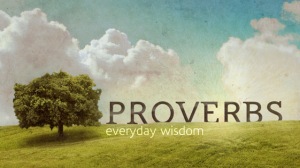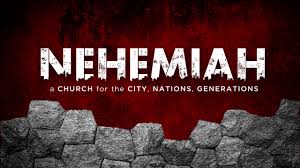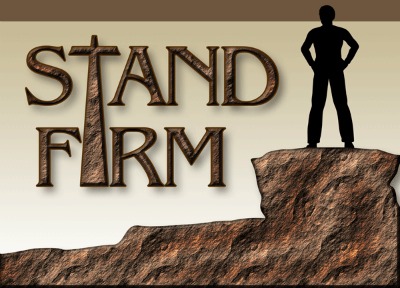 Proverbs
Proverbs
The book of Proverbs collected the wisdom of ancient Israel and offered both instruction and example in Godly living. The book of Proverbs does not have any real connection to the historical story of the Israelites as documented in Genesis – Esther. This helps prove the universal nature and value of practical wisdom. The fear of the Lord is the foundational theme of the entire work. Fear is the beginning of wisdom; ergo wisdom is the fountain of life. The Hebrews believed that wisdom could be passed from one generation to the next, thus they sought to record their instructions. Much like the book of Psalms, there are multiple authors, depending on which section of the book one is reading. Proverbs 10-22 were written by Solomon, whereas Proverbs 30 was written by Agur, and still others by King Lemuel. The Hebrews believed that true wisdom comes from God, and those who would gain understanding must learn the fear of the Lord. Much of the book of Proverbs seeks to examine the retribution principle. Based on human experience, it was right for one to believe that those who are righteous will prosper and those who are wicked will suffer. Proverbs also serves to evaluate the power of the tongue and human speech, teaching that one’s character can be determined from their speech. Ultimately, the way of wisdom is keeping to the path of righteousness, because only men and women of integrity will remain in the land.
The modern reader of Proverbs should seek to understand that the literary strategies utilized, such as parallelism, are techniques used to instruct and reinforce meaning. There are timeless principles embedded in each Proverb, which are still applicable to today. Second, a modern reader would do well to note the power of human speech, both written and verbal. Out of the mouth flows the well-spring of the heart. Words have great power, as Proverbs 18:21 states, they may be used to wound or heal one’s spirit. Words also increase futility, often replacing actions. Today’s youth are attacked with profanity, vulgar language and unwholesome speech. As I try to instill in my students and the church youth, if you say something enough, you are destined to believe it. Proverbs helps, in many ways, back up the wisdom taught in the Christian Church.
 Ecclesiastes
Ecclesiastes
The book of Ecclesiastes demonstrates that there is nothing in life that is able to bring self-fulfillment or give meaning to life. The true question of the book of Ecclesiastes is what is the moral value of a life. The author of the work is identified as Qoheleth. Traditionally, Qoheleth is identified as Solomon, however, scholars cannot be certain in that assumption. The author uses allegories, metaphors, and other literary devices to convey his meaning. The message of Ecclesiastes is that the course of life to pursue is a God-centered life. This author focuses on the idea of that the clock is ticking and everything has an appropriate place in time. According to the author, one’s moral value should be attained in the context of fearing God. One’s heart should be inclined to obedience. Another notable aspect of Ecclesiastes is that it rebukes part of the retribution principle. The book of Ecclesiastes displays that even those who are righteous will face hardships and suffer in life. Ultimately, The author accepts the retribution principle in theory but denies its ability to predict how one might fare in life or to explain any person’s current situation.
A modern reader of the book of Ecclesiastes should note that moral value should be attained though the fear of the Lord. Job was a righteous man in God’s sight, yet still suffered. This work shows that one cannot find happiness or fulfillment in anything other than the Lord. The Lord removes his protection from Job and allows the devil to test him. God has the confidence in Job to know that Job will not forsake Him. One must have the spiritual maturity to realize that everything comes from the hand of God. Life is a gift, and our purpose is to be righteous in the sight of the Lord. A modern reader would do well to adhere to Ecc 12:13 “Let us hear the conclusion of the whole matter: Fear God, and keep his commandments: for this is the whole duty of man.”
 Song of Songs
Song of Songs
The love poetry of the Songs celebrates the male-female relationship established by God at creation and the goodness of human sexual love expressed within the confines of God-ordained marriage. The author of the book, traditionally Solomon, details love and romance in a believing nation. Mainly, the work addresses the truth that comes out of Solomon’s life or regret. It celebrates romance in the right context. Christian couples should be the exemplars of what true love looks like. The book has been interpreted in many different ways. Some scholars believe that the ‘key’ to the book has been lost. The dramatic interpretation adheres to the idea that the work is an ancient Hebrew play. Other theories, such as the wedding cycle, didactic, or allegorical theories, attempt to interpret the book as allegory. Regardless of interpretation, the work is viewed as instruction on and celebration of the physical nature of human beings created male and female by God. The book focuses on the chastity of young lovers, which was a start contrast to the sexual immorality of the cultures surrounding the Hebrews.
A modern reader of Song of Songs should realize that there are many different interpretations of the work. The Christian church popularizes the idea that Song of Songs depicts the relationship between Christ and the Church. One would do well to realize that Solomon regrets his promiscuity. The positive dimensions of human love portrayed in the Song are important as cues for molding strong relationships. The topic of sex and relationships is often taboo in Church. A reader of Song of Songs would do well to comprehend how a biblical courtship should commence. Adhering to these teaching in the midst of the immorality of modern culture proves, for many, to be difficult. The Lord knows how wonderful the relationship between a man and woman is, and seeks to preserve its sanctity for marriage.
 Paul echoes the teaching of Jesus and says that husbands and wives should always err towards reconciliation (1 Cor 7:15). Paul does draw the exception of desertion. Here, again, the innocent party would not be bound to the original marriage, rendering the innocent party free to remarry. Paul reinforces this view when he says that someone who was freed from his or her marriage does not sin (1 Cor 7:26).
Paul echoes the teaching of Jesus and says that husbands and wives should always err towards reconciliation (1 Cor 7:15). Paul does draw the exception of desertion. Here, again, the innocent party would not be bound to the original marriage, rendering the innocent party free to remarry. Paul reinforces this view when he says that someone who was freed from his or her marriage does not sin (1 Cor 7:26).













